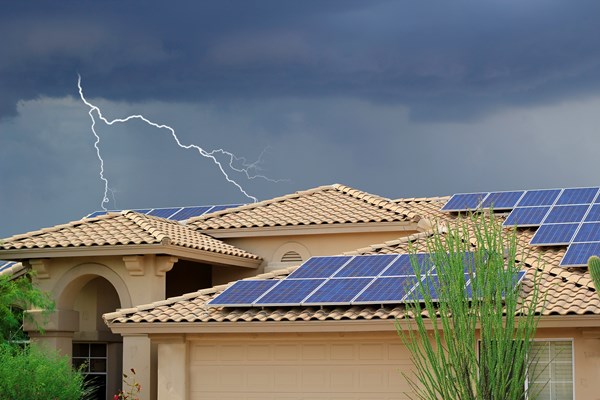Can I claim insurance on my solar?
Solar. It’s the word on the lips of so many Australians. After all, there’s really nowhere better to take advantage of the amazing benefits it can provide than our great sunny nation. But the first question many homeowners will ask us is: does this fall under my home and contents insurance?
After all, though it’s unlikely, there is always the chance of something going wrong. We pride ourselves on our expert ability to assist our customers in making claims to their insurer when issues do arise and clearing away any and all confusion revolving around the insurance process.
So, let’s get any doubts cleared away, below, you can find everything you’ll need to know. Let us first say that, whatever insurance issues may arise, you can rest assured that Solargain will be there to assist you with making your claim, and help you get back to enjoying the benefits of solar.
Whenever you pursue a significant home improvement project, you will enter into a contract with the supplier and installer and solar is no different. For warranty and insurance purposes, here are some of the most important factors to keep an eye out for in your contact.
- Full product and labour specifications, including system components, transport requirements and any other details that may affect the total price of the solar panels.
- Estimates of daily electrical output, annual power production and production divided into best and worst months.
- Clarity on who will be responsible for connecting your solar system to the power grid.
- Notification of responsibility for meter changeover (solar panels require "smart" meters).
- A detailed explanation of the process for receiving any Renewable Energy Certificates (RECs) and Small Energy Certificates (STCs) you are owed.
It is important to have such details in your contract, not only for the sake of warranty claims but also so that if you do require an insurance claim, you can ensure you receive a “like for like” replacement. At Solargain, we provide in-depth and detailed contracts that lay out all the points above, and more, to ensure you can be confident you have full clarity on your system. If you would like to speak with us about a system, call today on 1300 73 93 55.
Our 3-step insurance claim process is efficient and easy to follow. We’re here to assist you when a claim needs to be made.
- 1. Contact our service team and request a claim assessment.
- 2. If it is an insurable fault, which you wish to pursue, we will provide a letter of findings and quote for remedy.
- 3. Send the letter, quote and initial assessment invoice to your insurer for review.
And that’s it, from there, it’s in the hands of your insurer to review and rectify.
Even if your insurer has their own service provider, Solargain can still assist you in conducting the initial assessment and report. This is payable by you, however, the invoice can be given over to your insurer to have it deducted from your excess.
Before you contact your insurance company, it's always worthwhile attempting a manual reset as this will often resolve glitches and errors caused by power surges, storms or grid outages. If you are not confident conducting the reset procedure, feel free to contact us for guidance and assistance.
How to get started.
If you have a claim to be made, or simply have questions you'd like to discuss, then Solargain is here to help. Get in touch with us today by calling on 1300 73 93 55, or by visiting the Contact Us page.



